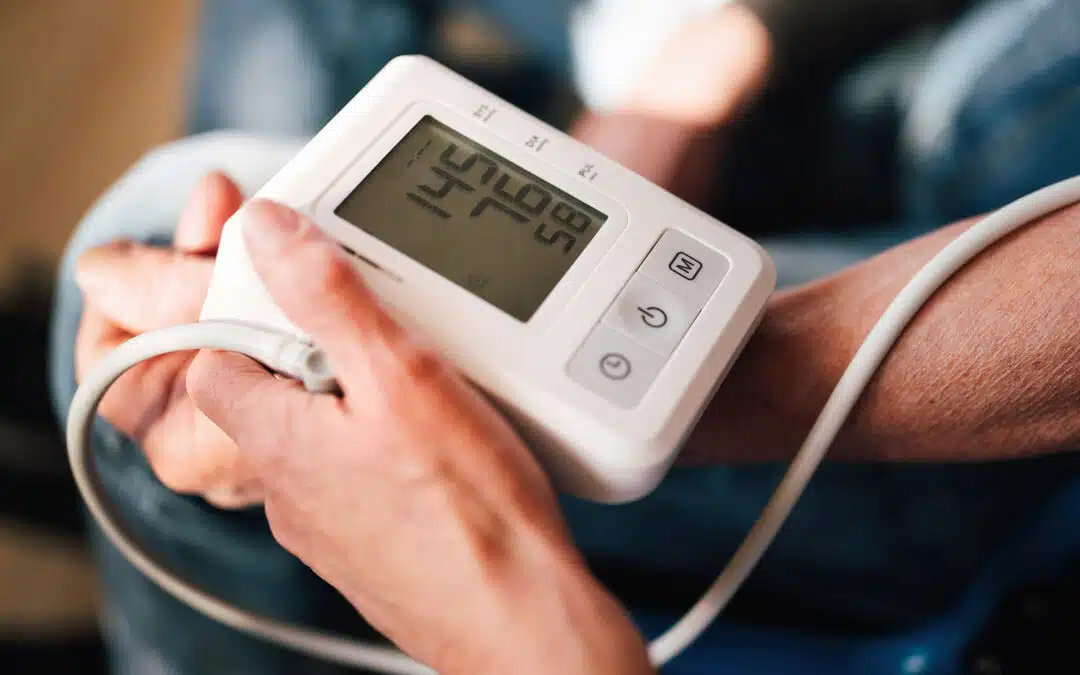Finding yourself at the threshold of your first cardiology appointment can bring a mix of emotions—curiosity, concern, and perhaps uncertainty. The journey from receiving a referral to a cardiologist to walking through the doors of a cardiologist’s office is filled with important questions. What does being referred to a cardiologist signify about my health? What preparations are necessary to ensure the appointment is as beneficial as possible? Will I undergo any tests during my initial visit, and what should I anticipate from the entire experience?
It’s common to feel a bit overwhelmed as you prepare to take this significant step towards safeguarding your heart health. Yet, with the right information and preparations, this crucial consultation can transform from a source of apprehension to an opportunity for empowerment. Knowing what to expect and how to prepare for your first cardiology appointment is key to alleviating anxiety. It ensures that you’re poised to gain the most from your time with your cardiologist, paving the way to a productive, informative, and reassuring experience.
As you stand on the cusp of this vital health journey, let’s delve into how you can best prepare for your inaugural cardiology visit, setting a solid foundation for a heart-healthy future.
What is a Cardiologist?
A cardiologist is a medical doctor specializing in diagnosing, treating, and preventing diseases related to the heart and blood vessels. Cardiologists have up to 16 years of education and are experts in managing complex heart conditions. They are known for treating conditions such as heart attacks, heart failure, and arrhythmias, among others. They also advise on heart health, helping individuals to control risk factors like hypertension and high cholesterol.
Why was I Referred?
You might be referred to a cardiologist for several reasons. A specialist’s evaluation is necessary if your primary care physician identifies symptoms that suggest a potential heart issue, such as chest pain, shortness of breath, or irregular heartbeat. Additionally, suppose you have a family history of heart disease or risk factors such as high blood pressure, diabetes, or a smoking habit. In that case, your doctor may recommend a consultation with a cardiologist to assess your heart health and implement preventive measures. In essence, a cardiologist plays a crucial role in both the management of existing heart conditions and the prevention of cardiovascular diseases.
How can I prepare for my first cardiologist appointment?
Seeing a healthcare provider can be a stressful experience. This stress often intensifies when it involves the heart, as there’s an increased concern about the severity of the issue. Here, we will mention a few strategies to reduce stress and enhance the productivity of your first appointment:
Preparing for Your Appointment
To ensure a comprehensive and efficient consultation at Vital Heart & Vein, gathering specific information ahead of time is crucial. Here’s a guide on what to prepare before your cardiologist visit:
Medical History Compilation
A thorough account of your health background is invaluable for your cardiologist. Be sure to include:
- Any past medical conditions, surgeries, or hospitalizations
- The presence of heart disease within your family
List of Medications
Document all medications you’re currently taking, including:
- Prescription medications
- Over-the-counter drugs
- Any dietary supplements, along with their dosages and how frequently you take them
Symptom Diary
Keep a detailed log for symptoms such as chest discomfort, palpitations, or unusual fatigue. Note the times they occur and their intensity.
Know Your Metrics
Being informed about your recent health statistics can aid in your discussion. Be aware of:
- Latest blood pressure readings
- Cholesterol levels
- Any other pertinent health figures
Prepare Your Queries and Concerns
Think ahead about what you want to discuss during your appointment. Jotting down questions or concerns will help ensure you cover all topics important to you.
By organizing this information beforehand, you maximize the effectiveness of your time with your cardiologist at Vital Heart & Vein. This preparation allows for a focused consultation that directly addresses your health needs and concerns.
Your Appointment Day
Preparing adequately for your Vital Heart & Vein cardiology appointment ensures a seamless and effective visit. Here are vital steps to help you get ready:
Important Documents to Bring
Make sure you have all essential documentation on hand. This includes:
- A comprehensive medical history
- A current list of medications you’re taking
- Any notes you’ve taken about symptoms you’re experiencing
- Results or records from previous medical tests
- Your identification
- Your current insurance card
Dressing Appropriately
Opt for loose, comfortable attire that will simplify the process of undergoing physical exams and any tests scheduled for your visit. For tests like the Electrocardiogram (EKG) where sensors might be placed on your skin, it’s best to skip applying lotions or creams right before your appointment.
Food, Drink, and Caffeine
Follow any specific guidelines you’ve received from our office regarding eating, drinking, or caffeine consumption before your appointment to ensure accurate test results.
Arrival Time
We recommend arriving 15-20 minutes before your scheduled appointment time. This extra window allows you to fill out any necessary paperwork, verify that we have received all pertinent previous test results, confirm your insurance coverage, and address any unforeseen delays, such as finding parking.
Bringing Someone Along
Having a friend or family member accompany you can be incredibly helpful. They can offer support, help you remember to communicate all relevant information, and help you keep track of the details discussed during the visit.
By following these preparation tips, you can ease any appointment-day stress and equip our healthcare team with the information necessary to provide you with optimal care. Your readiness contributes significantly to our ability to ensure that Vital Heart & Vein meticulously cares for your heart and vascular health.
What Will Occur On My First Cardiology Consultation?
At Vital Heart & Vein, your initial visit with a cardiologist is designed to establish a thorough understanding of your cardiovascular health. Here’s what you can expect during your first appointment.
Physical Exam
As soon as you arrive, our cardiology team will begin by assessing your vitals, which will include measuring your:
- Height and weight
- Blood pressure
- Breathing rate
- Resting heart rate
- Body temperature
Following this, your cardiologist will conduct a comprehensive physical examination of the heart. They will use a stethoscope to listen to your heartbeats and lung sounds when you breathe. They will also check the blood vessels in your neck, arms, and legs for any abnormalities or swelling and evaluate your ankles and feet to detect fluid accumulation.
In-office Heart Tests
During your first visit, depending on your specific situation, our team may perform a few noninvasive, pain-free tests to gain additional insights into your heart health.
Blood Tests
We might conduct blood tests to check your cholesterol levels, kidney function, blood cell counts, and other important health indicators. It’s usually unnecessary to fast before these tests, but you’ll be informed if fasting is required. If you need to fast for a blood test, it can be scheduled for another time.
Electrocardiogram (EKG)
An EKG is a simple test that records the heart’s electrical activity through electrodes attached to the skin. It helps detect any irregularities in the heart’s rhythm or structure.
Chest X-ray
A chest X-ray provides us with visual images of your heart and can reveal signs of heart conditions and lung and blood vessel issues.
Should more detailed testing—such as stress tests, echocardiograms, or angiograms—be needed, these will generally be arranged for a future date to provide you with a comprehensive cardiovascular assessment.
At Vital Heart & Vein, we provide patient-centered care focusing on your heart health. Your first visit is an essential step toward achieving a healthier, more vibrant heart.
What Questions Will My Cardiologist Ask During My Visit?
During your visit to a cardiologist, you can expect the specialist to engage in a detailed discussion about your health to gather essential information that will aid in diagnosing and treating any cardiac conditions. Here are questions a cardiologist may ask:
Symptom Description:
- What symptoms are you experiencing?
- When did these symptoms first start?
- Are your symptoms constant, or do they come and go?
- Do certain activities worsen your symptoms (e.g., physical exertion, stress)?
- Have you noted any patterns or triggers associated with your symptoms?
Past Medical History:
- Have you been treated for any heart-related or other medical conditions in the past?
- What surgeries or hospitalizations have you had?
- Do you have other health conditions, like high blood pressure, diabetes, or high cholesterol?
Family History:
- Is there a history of heart disease or other cardiovascular conditions in your family?
- Have any family members had heart attacks, strokes, or sudden cardiac death?
Lifestyle and Habits:
- What is your diet like?
- Do you engage in regular physical activity?
- Do you smoke tobacco or consume alcohol? If so, how much and how often?
- Are you exposed to any environmental or occupational hazards?
Current Medications:
- What medications or supplements are you currently taking?
- Do you have any allergies to medications?
Symptom Management:
- Have you tried any treatments or lifestyle changes to alleviate your symptoms?
- Have any treatments been effective or ineffective?
Assessment of Risk Factors:
- Do you have a history of high blood pressure, high cholesterol, or diabetes?
- Are you currently or have you ever been overweight or obese?
- What is your daily stress level, and how do you manage it?
The cardiologist’s questions aim to build a comprehensive picture of your cardiovascular health, identify potential risk factors, and help formulate a plan for further testing, treatment, or lifestyle modifications. Preparing for your visit is beneficial because you can think about the answers to these questions and gather relevant health records.
Setting the Stage for a Successful Cardiology Journey
Embarking on your first cardiology appointment can be a significant step towards prioritizing your heart health. By following the comprehensive preparation guide we’ve outlined, you’re well on your way to making the most of your time with your cardiologist. Remember, the goal of this initial visit is not just to assess your current heart health but to lay the groundwork for a lasting, proactive partnership with your healthcare provider.
At Vital Heart & Vein, our esteemed cardiologists are dedicated to providing personalized, top-tier cardiovascular care. We understand the importance of feeling prepared, informed, and at ease from the start of your cardiac care journey. Our physicians and staff are here to support you every step of the way, ensuring that your health concerns are addressed and your questions answered.
To embark on your path to better heart health with a team that genuinely cares, we invite you to reach out to us. Booking your first appointment at Vital Heart & Vein is the first step towards a healthier heart and a brighter future. Don’t hesitate to contact any of our Houston area offices and schedule your visit. Let us be your partners in heart health from the initial consultation and beyond.
For a compassionate, comprehensive approach to cardiology, contact Vital Heart & Vein—where your heart is in expert hands. Call us today to book your Cardiology Consultation and take the first step towards optimal cardiovascular care.




